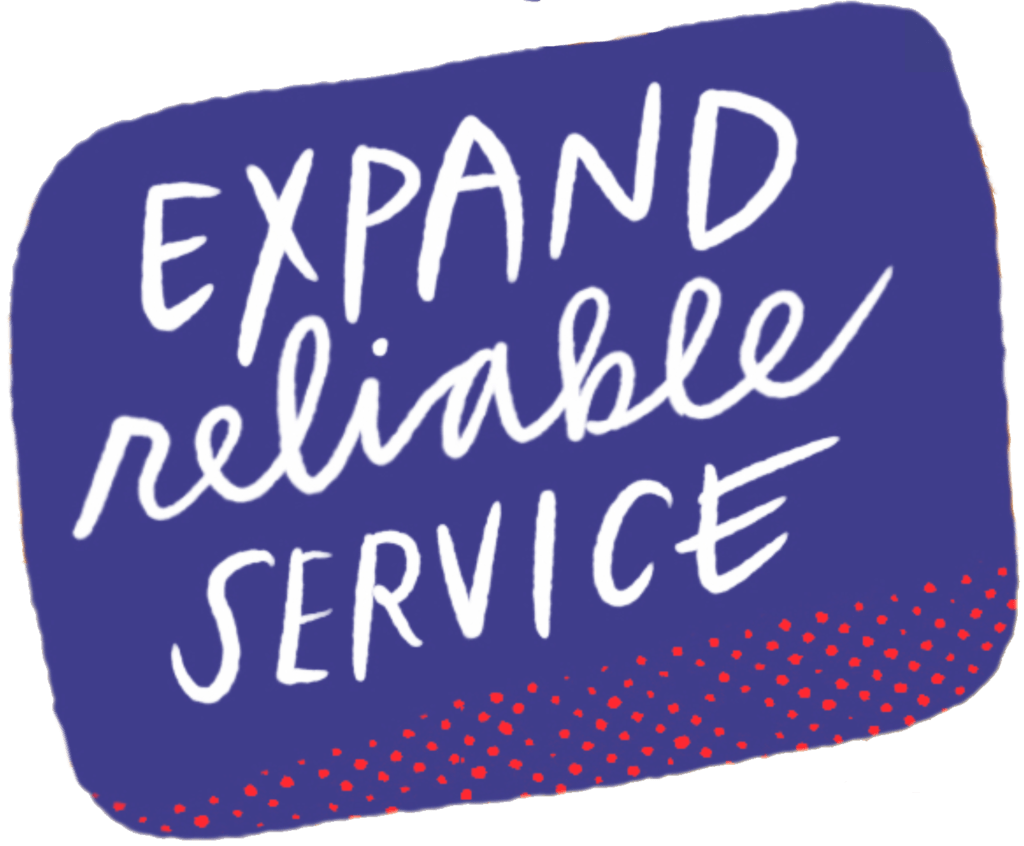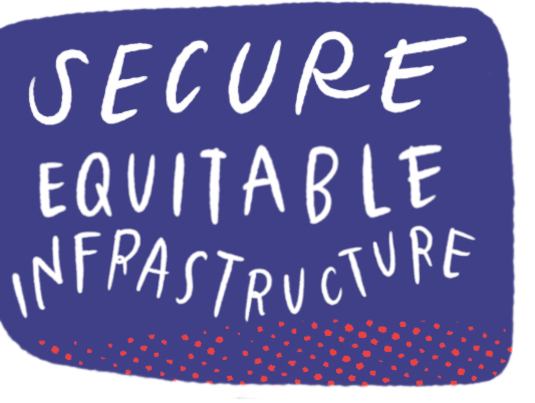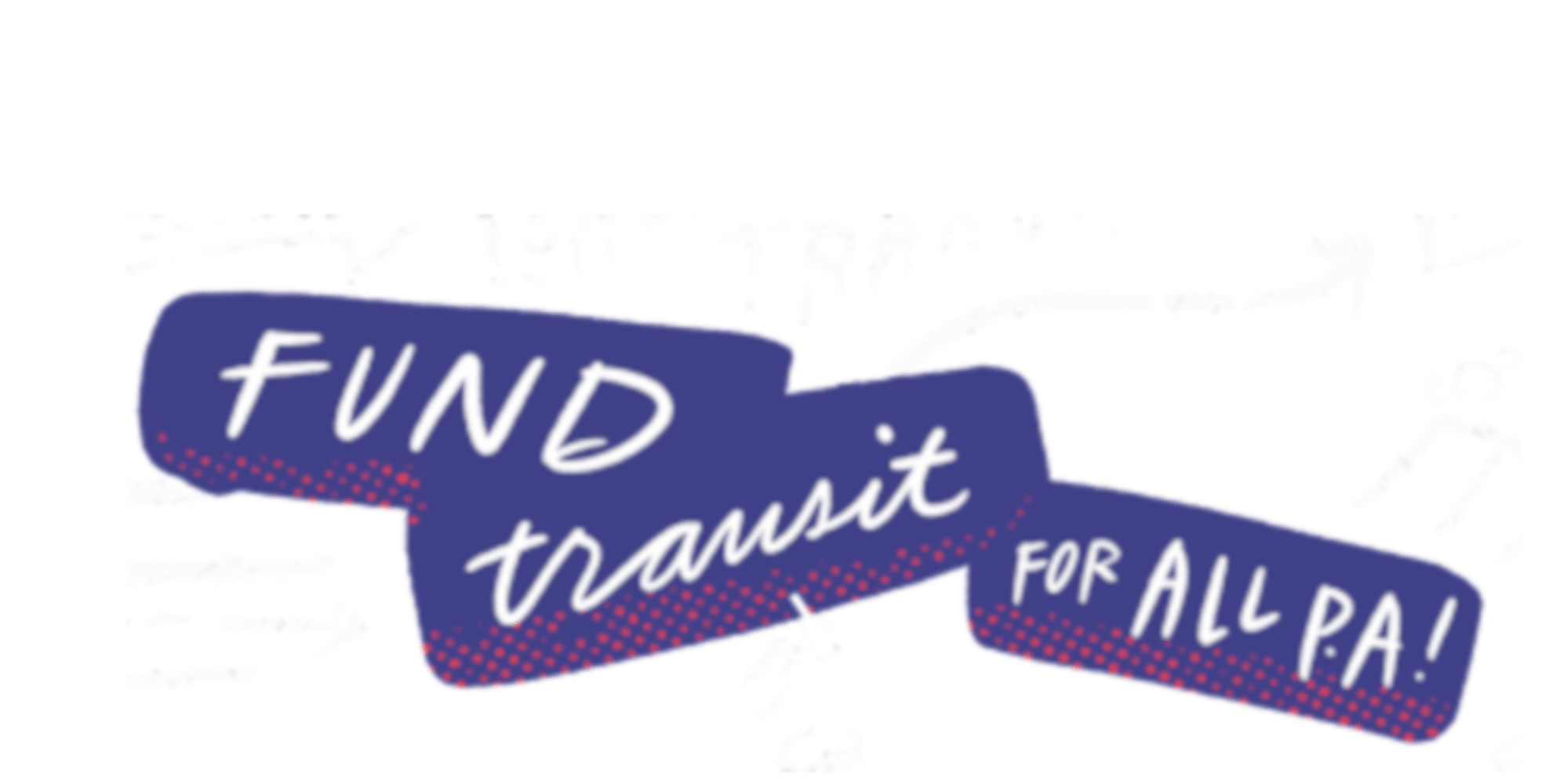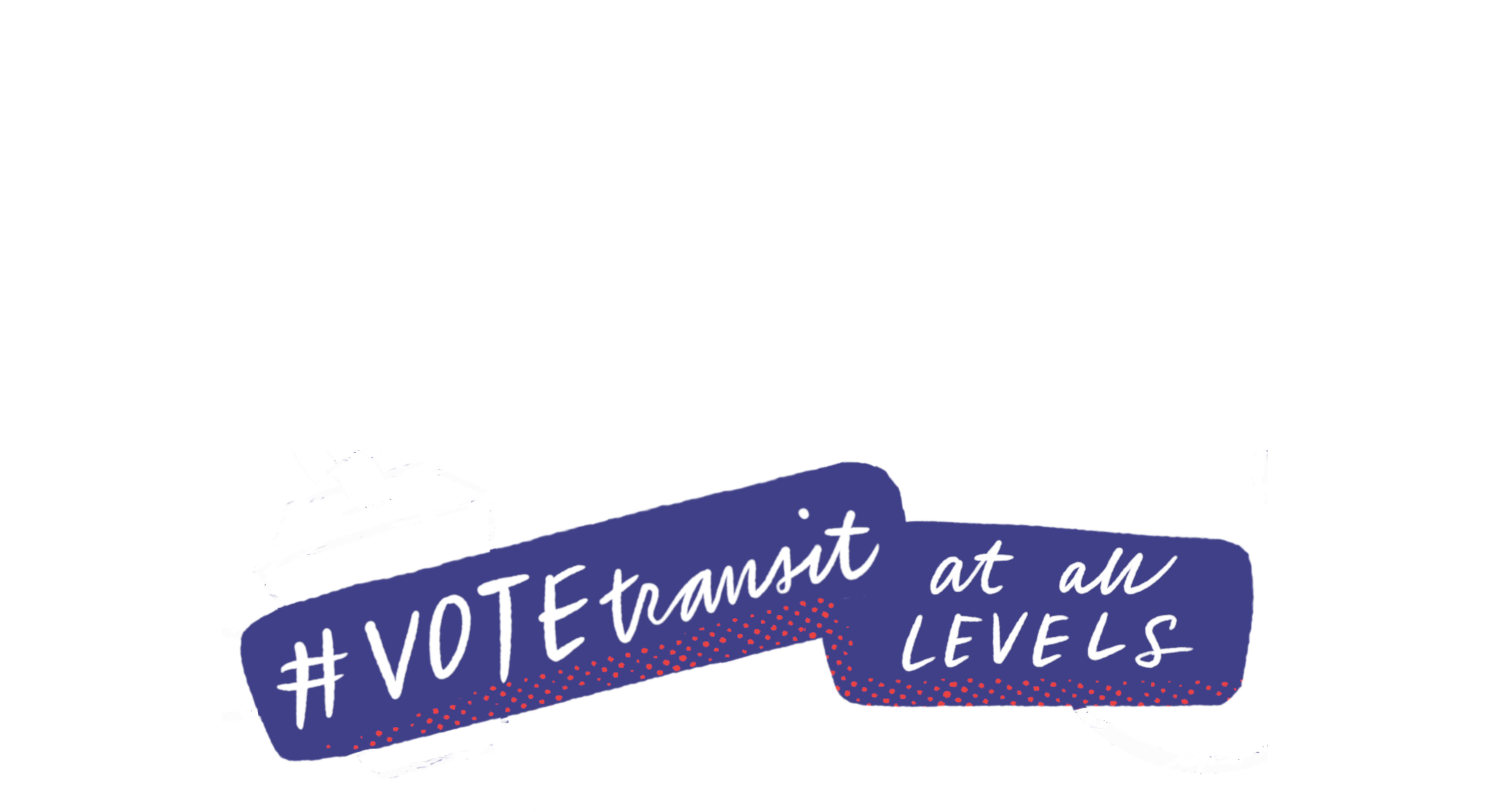PPT’s 2024 Strategic Plan • We Ride Together
Every year our members and board get together to create, vote on, and enact a strategic plan with our goals for strengthening public transit with an actionable plan. This year we chose five core campaigns to focus on:
- Win Affordable Fares
- Expand Reliable Service
- Secure Equitable Infrastructure
- Fund Transit for All PA!
- #VoteTransit At All Levels

A summary of each of these campaigns with an update on our progress is below. Check out the full version of the plan for more detail and to see our Organizational Development Goals
Win Affordable Fares
Affordable fares will change the lives of many residents in Allegheny County. Free fares mean that families don’t have to choose between buying groceries, or going to the doctors, or being able to ride transit to get to the many destinations a person needs in order to live a full life. Dignified access to transit means transit that is affordable so everyone can utilize our transit system. The Fair Fares Coalition has been working for 4+ years to get a zero fare program in Allegheny County. We will not stop until we win free fares for all low income residents in Allegheny County!
Read more about the recent win of half fares for low income residents in Allegheny County.
Additionally, this year PPT is working to encourage PRT to begin a Bulk Bus Pass Program to allow employers and developers to purchase transit passes for their employees & residents.
Expand Reliable Service
PPT will organize a vision for an ambitious Universal Baseline Quality Service standard that we will advocate for in PRT’s Bus Line Redesign project. We will ensure a better transit system for all riders. We will defend our service around the county by organizing affected riders on routes impacted by cuts, and work to reverse those cuts. PPT will also organize for PRT to establish reliable, realistic bus schedules across our transit system, as well as push for transit workers to have more of a voice in scheduling for transit operations. Riders and workers are what makes transit go, so the opportunity to uplift those voices in the fight for transit is crucial to winning more equitable transit for all.
Secure Equitable Infrastructure
PPT will fight for investment in sidewalks, affordable housing, bus shelters and more that enable all riders to easily access our transit system.
Read about our work towards achieving Complete Streets in our city.
Fund Transit for All PA!
Whether we live in Harrisburg or Pittsburgh, Wilkes Barre or Erie, rural towns or Philadelphia, all Pennsylvanians deserve safe, reliable, dignified access to the places they need to go. By fully funding transit we ensure that all residents across the Commonwealth can access transit that positively impacts their daily lives. While pushing the state we will also push for access to federal infrastructure funding to ensure the most dollars possible to go towards more reliable transit in PA.
PPT is a leader in the statewide Transit for All PA! campaign. Learn more here.
#VoteTransit At All Levels
We can do so much when our legislators fight with us for better transit in our region. By building and using our political relationships in the region we ensure that transit is at the forefront of conversation between our legislators, and that they know the important role of transit in the constituents’ lives whom they serve. For residents, a part of the fight for better transit is to vote in legislators that will make great changes in our transit system. There is a voice in every vote, and we want to show our legislators what we know: that transit is important to us all.
Take the #VoteTransit pledge here to hold our County Executive accountable to our rider demands.





